Heartsaver CPR $59.00
$59.00
Product Description
Heartsaver CPR is a comprehensive CPR, AED course for laypersons who desire or require first-responder level training.
Heartsaver® CPR AED is a course that teaches adult and child CPR and AED use, infant CPR, and how to relieve choking in adults, children, and infants. This course teaches skills with the AHA’s research-proven practice-while-watching technique, which allows instructors to observe the students, provide feedback, and guide the students’ learning of skills.This course is for anyone with limited or no medical training who needs a course completion card in CPR and AED use to meet job, regulatory, or other requirements.
|
Duration:
Approximately 2.5 – 3hrs |
Certification Period:
Up to 2 years |
Prerequisites:
None |
|
Cardiac arrests occur more commonly than we think, and it can happen to anybody, anytime. A bystander, usually someone close to the victim, is the first person who can help save his life. However, 70 percent of Americans will feel helpless to act immediately because they are not confident enough to perform cardiopulmonary resuscitation (CPR). Only about 30% of people who suffer a cardiac arrest get immediate CPR, and less than 8% survive when it occurs outside the home. The American Heart Association (AHA) encourages everyone to undergo some form of CPR Training to empower them to act immediately in case of a cardiac emergency. Almost 90% of all cardiac arrests occur at home, and if it happens to someone you love, you may be his only chance to survive the life threatening situation.
AHA Chain of Survival
The American Heart Association considers cardiopulmonary resuscitation as one link in what it calls the “chain of survival.” The chain of survival is a series of sequential actions that will give a heart attack victim the greatest chance of survival. When an emergency situation is recognized outside of a medical facility, the first link in the chain of survival calls for activating the emergency medical services by calling 911 (in the USA). This is followed by CPR performed by a bystander until a defibrillator becomes available. CPR Training enables one to recognize a cardiac emergency and act accordingly while waiting for medical help to arrive. When effective CPR is performed by a bystander who is usually a relative or friend after sudden cardiac arrest, the victim’s chance of survival increases two to three times more. Failure to act can result in unnecessary deaths, so the American Heart Association trains more than 12 million Americans annually, to equip them with the skills necessary to perform bystander CPR. CPR Training involves learning techniques on how to help a victim circulate oxygenated blood, which will keep the brain alive until advanced medical care (including defibrillation) can be initiated. CPR is indicated for people who are unresponsive and not breathing. It may also be done on victims whose pulse cannot be perceived by a bystander and who may be breathing abnormally. The goal of CPR is to delay tissue death and prevent permanent brain damage. Although basic CPR can be performed by anyone, having adequate CPR training increases one’s chances for getting effective emergency care before professional help arrives. Learn more about the 2010 American Heart Association Guidelines for CPR & ECC and acquire the confidence and skills you need to act when your help is most needed.
References:
CPR Statistics. AHA. Accessed May 20, 2012. CPR. WebMD.
THIS PRODUCT IS NOT REFUNDABLE
Be the first to review “Heartsaver CPR $59.00” Cancel reply
Related Products
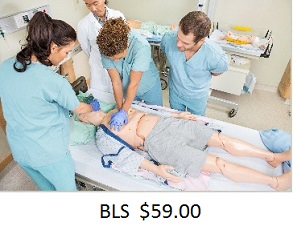
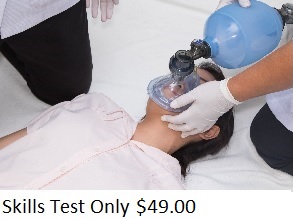
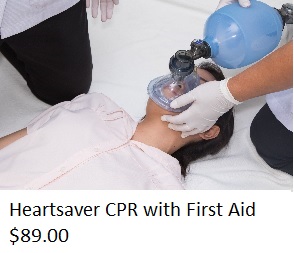
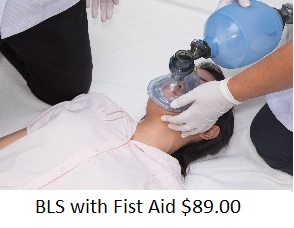

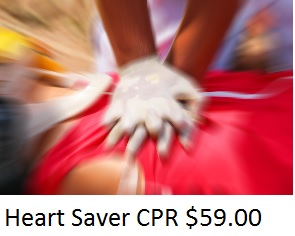


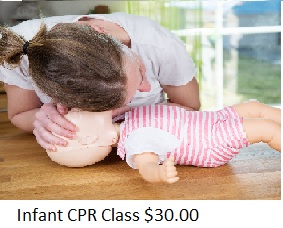
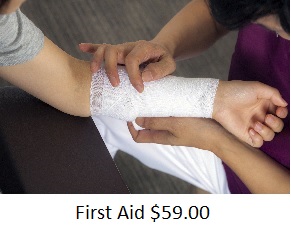

Reviews
There are no reviews yet.